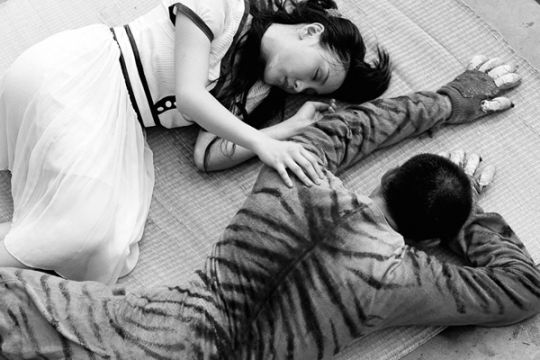Millennium Film Journal | No. 61: World Views

Synopsis
"Howard Guttenplan died on February 28th, when we were in the final editorial stages for this issue, It came as a shock to me, I knew he had been ill for some time, having resigned from the directorship of the Millennium Film Workshop a few years ago, bur I did not suspect that his illness was a life-threatening pancreatic cancer, Howard was an extremely private, almost hermetic individual. Of the many people connected with the Millennium over the years, including several who worked alongside him, very few knew much at all about his biography, his personal life, or the condition of his health. But everyone was well aware of his commitment to the Workshop, He spent a good part of every day in his office on the third floor of 66 East 4th Street, managing its five programs with minimal staff, keeping the institution afloat for forty years often against significant odds.One of the five programs was, of course, the Millennium Film Journal, which he was instrumental in initiating in 1978, He invited me to join the editorial board in 1986, to help prepare the massive triple issue celebrating the 25th anniversary of the Workshop (Nos. 16/17/18), and I continued as an editor until Howards resignation from the Workshop in 2011, when I added the management responsibilities to my editorial position, Howard was deeply involved in the journal, handling the production, staffing, distribution, advertising, and finances, in addition to designing the cover for many issues, bur he left the editorial decisions to the editors, largely sticking to the journalistic convention of keeping business/advertising separate from editorial, One exception to this rule was the Millennium Photo Gallery, which appeared in several issues in the 80s and early 90s, It consisted mainly of images of filmmakers, selected by Howard, most of whom had appeared in the Personal Cinema series – many posing with Howard, 'celebriry selfies' avant la letter. He also crossed the business/editorial divide for a few issues in which he took a special interest, such as the Brakhage at the Millennium triple issue (Nos. 47/48/49) for which he engaged Mike Hoolboom as guest editor, giving him access to the Workshop's rich archive of documents, recordings, and images, and guiding him through it. Hoolboom painstakingly scrutinized the materials, transcribing excerpts from available cassette recordings of Brakhage's Q & A sessions after his screenings, which together with letters from Stan to Howard and the many photographs, give a sense of the lively atmosphere of the Millennium in the 1980s and early 90s, Though Howard valued his relationships with stars like Brakhage, Jack Smith and Hollis Frampton, he remained equally committed to lesser known artists, giving many (including myself) their first solo shows, as well as access to the space and equipment, He also fostered relationships with cinema artists outside the local New York community, inviting avant-garde filmmakers from all over the U.S., from Europe and from the Iron Curtain countries.
In this light, it is an appropriate tribute to Howard Guttenplan that this issue of the MFJ is titled World Views. In it we celebrate the world-wide phenomenon of artists' cinema, opening with Vera Dika's review of a major exhibition of avant-garde film at the Centre Pompidou, continuing with interviews with two Japanese filmmakers by Tomonishi Nakamura, and closing with Martin Rumsby's survey of moving image artists of the Polynesian Triangle.
The Millennium went through a period of upheaval after Howard resigned, but it managed to resurrect itself under the able guidance of the current managing director Peter Kingsbury, and has re-opened its doors in Bushwick, Brooklyn, The legacy left by Howard Guttenplan's 40 years of dedication to the institution lives on, not least in the pages of this bi-annual publication." – Grahame Weinbrehn
Technical Specs
Author: Grahame Weinbren | Kenneth White (eds.)
Publisher: New York: Millennium Film Workshop
Pages: 96
Date: 2015
Publisher: New York: Millennium Film Workshop
Pages: 96
Date: 2015